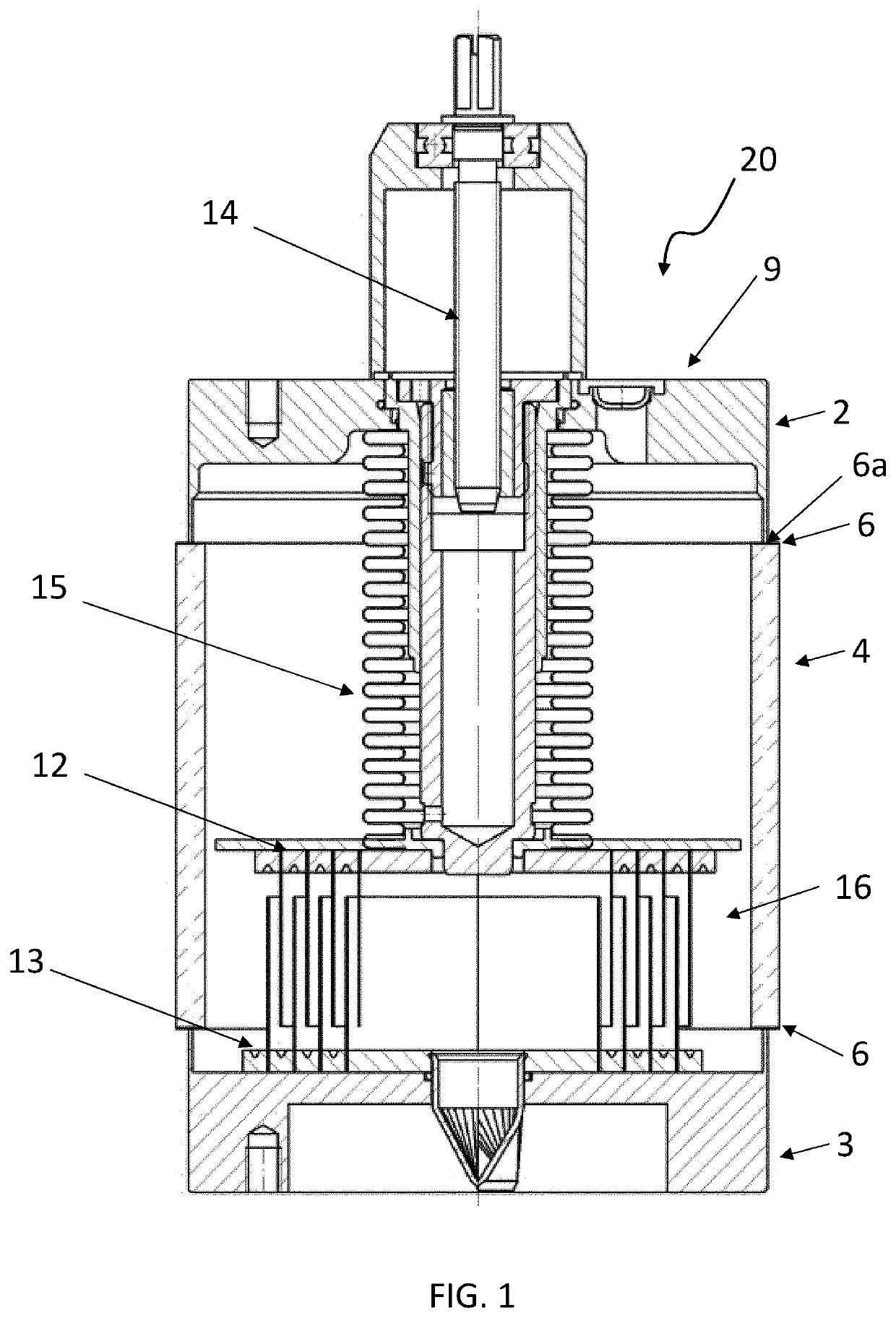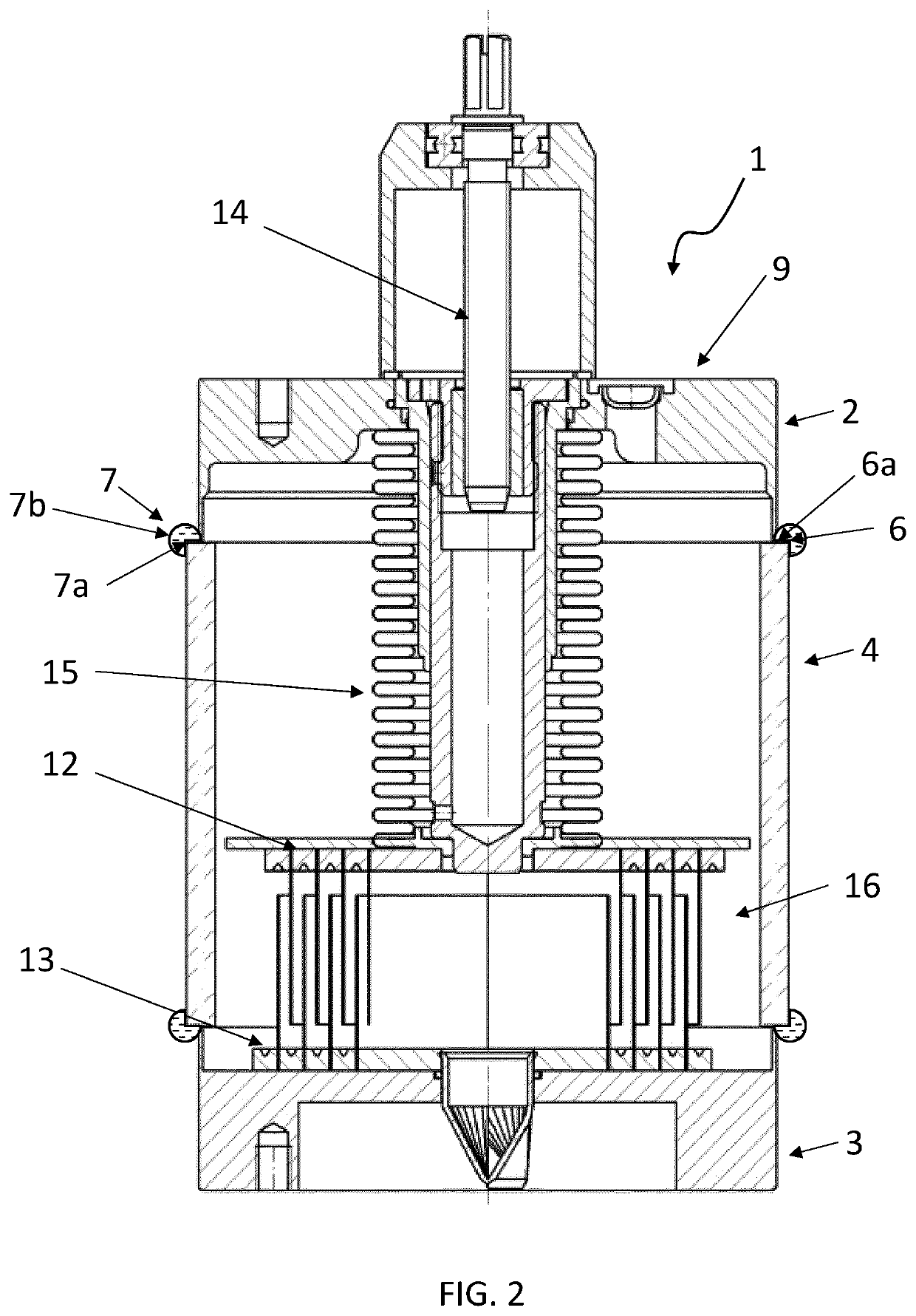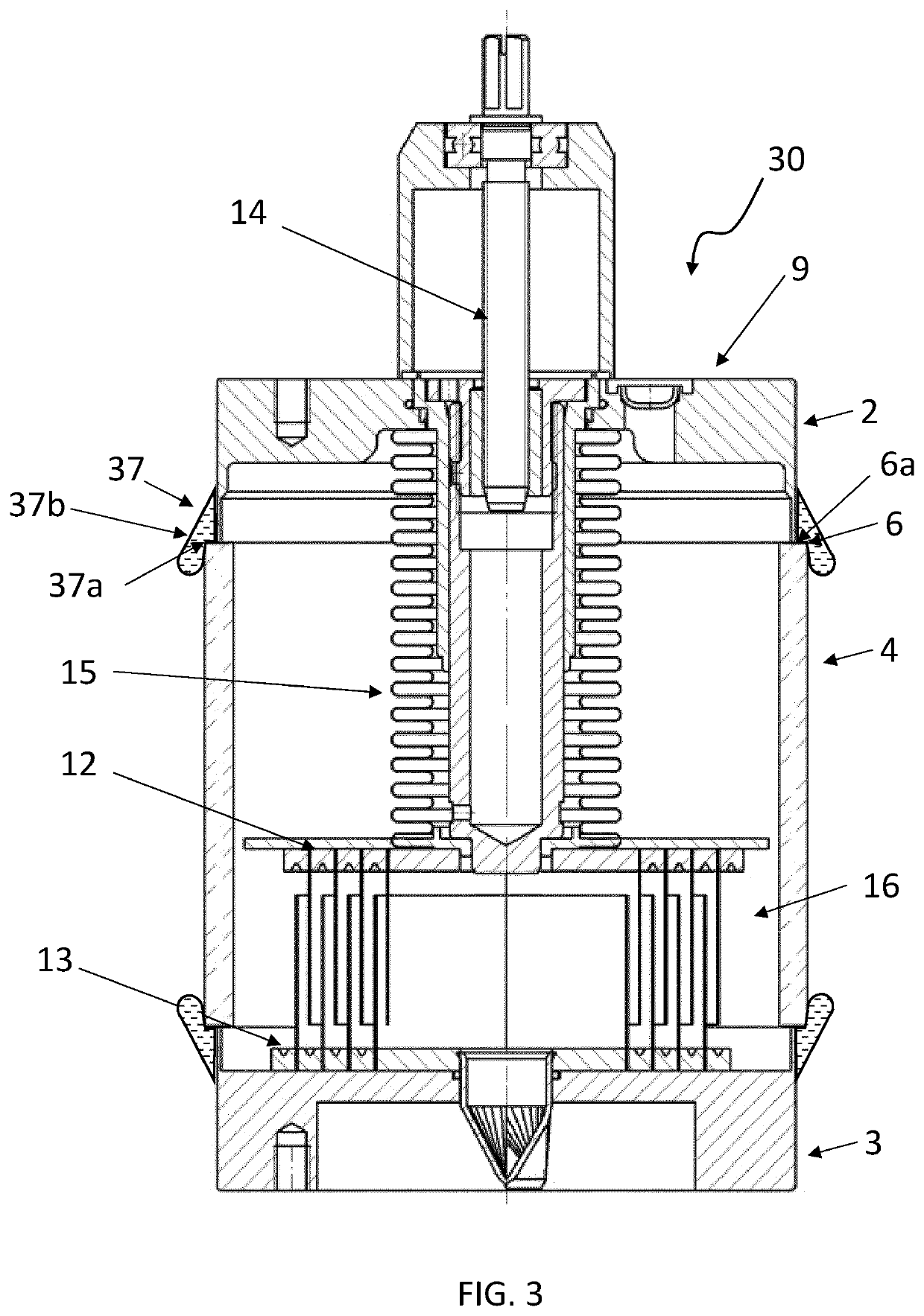Vacuum capacitor
a capacitor and vacuum technology, applied in the field of vacuum capacitors, can solve the problems of limiting the operating reducing the problem, and reducing the problem of the strength ultimately limiting the operation voltage of the capacitor,
- Summary
- Abstract
- Description
- Claims
- Application Information
AI Technical Summary
Benefits of technology
Problems solved by technology
Method used
Image
Examples
Embodiment Construction
[0040]FIG. 1 shows a section view of a state-of-the-art vacuum capacitor 20. Such a vacuum capacitor comprises an enclosure 9 to contain a vacuum dielectric medium 16; the enclosure comprising a first conductive collar 2 and a second conductive collar 3 (here in the form of metallic collars) separated by an insulating element 4 of the enclosure 9. Commonly the insulating element 4 is made out of a ceramic material in the shape of a cylinder. Due to the manufacturing process and especially due to the requirement associated with the joining, for instance by brazing the insulating element 4 to the metallic collars 2, 3, the insulating element 4 extends further in the radial direction than the collars. Therefore, the insulating element 4 exhibits at least one, in case of FIG. 1 two protruding edges 6. As mentioned, insulating element 4 must be bound to the collars 2, 3, so that the surface of insulating element 4 perpendicular to the collar is eventually covered with a brazing material ...
PUM
| Property | Measurement | Unit |
|---|---|---|
| angle | aaaaa | aaaaa |
| radio-frequency | aaaaa | aaaaa |
| radio-frequency | aaaaa | aaaaa |
Abstract
Description
Claims
Application Information
 Login to View More
Login to View More - R&D
- Intellectual Property
- Life Sciences
- Materials
- Tech Scout
- Unparalleled Data Quality
- Higher Quality Content
- 60% Fewer Hallucinations
Browse by: Latest US Patents, China's latest patents, Technical Efficacy Thesaurus, Application Domain, Technology Topic, Popular Technical Reports.
© 2025 PatSnap. All rights reserved.Legal|Privacy policy|Modern Slavery Act Transparency Statement|Sitemap|About US| Contact US: help@patsnap.com



